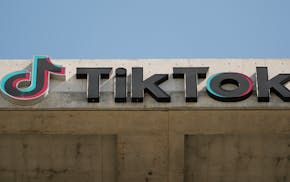3M Co. announced Monday that it will acquire California-based ceramics company Ceradyne Inc. for $860 million, a move that will broaden 3M's reach into the defense and automotive industries.
Ceradyne makes advanced ceramics for automobiles, the oil and gas industries, solar, electronics and defense, with a focus on developing materials that are harder, lighter and more resistant to all kinds of damage.
"They'll be able to use the technology and the ceramics knowledge that Ceradyne has and they'll be able to leverage it," said Jeff Windau, an analyst with Edward Jones.
Maplewood-based 3M offered $35 per share for Ceradyne, a 43 percent premium on the smaller company's stock price at market close Friday.
Ceradyne's stock has fallen 24 percent since April, in part on investor fears that its crucial military business will suffer if Congress and the White House allow $50 billion in across-the-board defense budget cuts to take effect Jan. 1.
The firm's ceramics are used in engines and by the military for helicopter armor, missile nose cones, and helmets and body armor for soldiers. U.S. government agencies represent more than a third of sales for the company.
The company made $83.9 million in profit in 2011. It tried to expand its non-defense business by acquiring Washington-based Viox Corp., a specialty glass company in the electronics, industrial and health care markets.
Some analysts believe 3M is getting a bargain on Ceradyne thanks to the looming fiscal cliff and concerns about cuts to military spending. Windau thinks the price is neither low nor high, but that the acquisition makes sense for 3M.
"You think of innovation and you think of their roots in the materials areas," Windau said. "That's where this definitely fits right into their core strength."
The acquisition of Ceradyne is 3M's largest since it paid $943 million for Cogent, which specializes in identification systems. 3M produces more than 55,000 products, including Post-It notes, Scotch tape, optical films and solar components.
Donna Fleming Runyon, a spokeswoman for 3M, said the company already uses ceramics in making dental products and glass microspheres for other products, but finding lighter, stronger materials will be useful for all types of 3M products.
Ceradyne, headquartered south of Los Angeles in Costa Mesa, employs 2,100 people and produces more than $500 million in annual revenue.
Adam Belz • 612-673-4405 Twitter: @adambelz
Thai plastics firm will pay $20 million to settle with U.S. over Iran sanctions violations
Biden administration moves to make conservation an equal to industry on US lands
Stock market today: Wall Street limps toward its longest weekly losing streak since September
